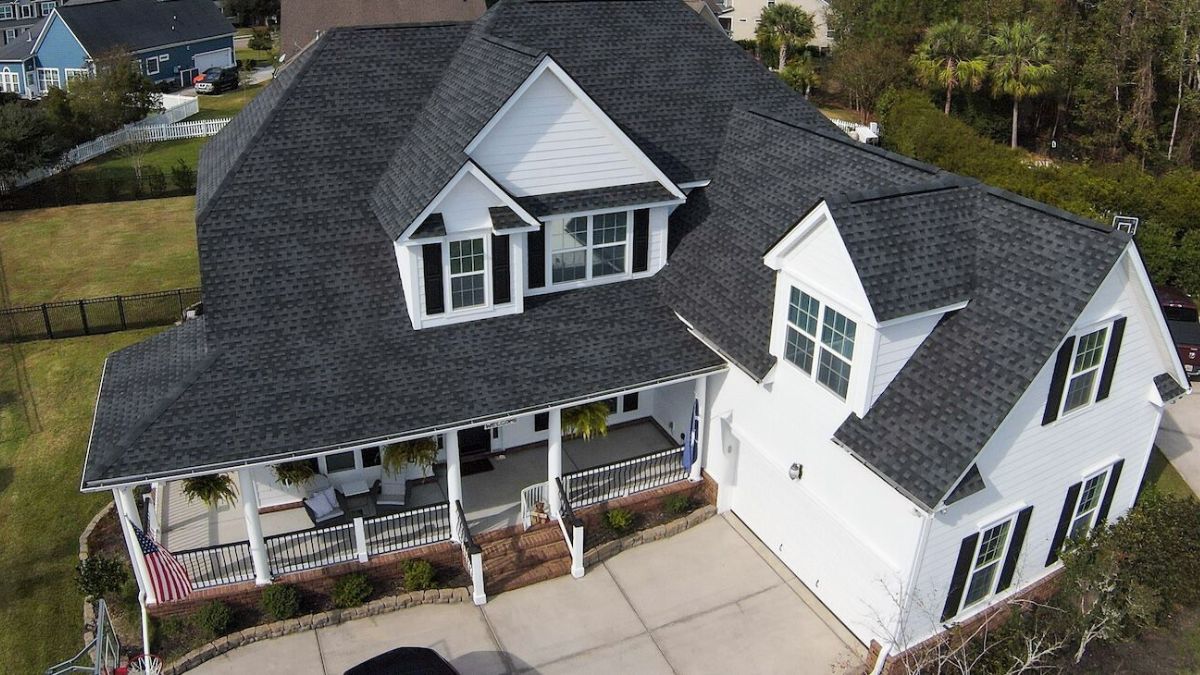Palm & Pineapple Roofing and Exteriors | Trusted Roofing Experts in Lowcountry
Elevating Homes, One Nail at a Time
When it comes to safeguarding one of your most valuable investments – your home – there’s no room for compromise. Whether you need a roof installation, roof repair, or have other exterior renovation needs, the right team can make all the difference. If you’re in Lowcountry or Summerville, South Carolina, Palm & Pineapple Roofing and Exteriors stands as the trusted name for quality craftsmanship, exceptional service, and long-lasting results.
This blog will guide you through who Palm & Pineapple Roofing is, what services they offer, and why they are the go-to roofing and exterior experts in the Lowcountry area.
Who Is Palm & Pineapple Roofing and Exteriors?
Palm & Pineapple Roofing and Exteriors is a veteran-owned roofing company based in Summerville, SC, serving the Lowcountry with a mission of excellence. Recognized for their strong commitment to integrity, customer satisfaction, and attention to detail, Palm & Pineapple has become a household name for roofing and exterior renovations.
Whether you’re seeking a reliable roofing installation or looking for long-term durability with repairs, this GAF Certified Contractor delivers seamless solutions tailored to clients’ specific requirements. The certification allows them to offer enhanced warranty options, adding confidence to every roof they build or repair.
From the initial consultation to the final shingle placement, this expert team prioritizes peace of mind for every homeowner by combining industry-leading materials and a customer-centric approach.
Why Choose Palm & Pineapple Roofing and Exteriors?
1. Expertise You Can Trust
With years of experience in roofing and exterior renovations, you can rely on the team’s hands-on expertise. Their professionals handle everything from asphalt roofing for traditional homes to durable and elegant metal roofing systems. Every project is treated with care, precision, and a mastery of details.
2. Prioritizing Customer Satisfaction
Your satisfaction comes first. The Palm & Pineapple team takes pride in creating a stress-free experience for customers, enabling seamless communication and ensuring every need is met with the utmost professionalism. Once you’ve worked with them, you’ll realize this is more than just another roofing company; it’s a team that truly cares about your home.
3. Building Relationships That Last
When you hire Palm & Pineapple Roofing and Exteriors, you’re not just getting top-tier services for your current project. You’re building a long-term relationship with experts you can count on for years to come. Whether it’s future roof repairs, gutter installations, or energy-efficient window replacements, you’re covered.
Services Offered by Palm & Pineapple Roofing and Exteriors
Let’s break down the full range of roofing and exterior services offered by Palm & Pineapple Roofing.
Residential Roofing Services
1. Roof Installation
Need a new roof for a brand-new home or to replace a failing one? Trust this team to outfit your home with a high-quality roof that provides years of durability and style.
2. Roof Replacement
Is your roof showing signs of wear and tear? Palm & Pineapple can provide a replacement that seamlessly integrates aesthetic appeal with exceptional functionality.
3. Roof Repairs
From storm damage patches to long-term wear solutions, their repair services tackle the problem and restore your roof to its best condition.
4. Asphalt & Metal Roof Options
Palm & Pineapple specializes in offering two versatile and popular solutions for roofing:
- Asphalt Roofing for reliability and cost-efficiency.
- Metal Roofing for sophistication, durability, and modern appeal.
Additional Home Exterior Services
Beyond roofing, Palm & Pineapple Roofing and Exteriors provides a variety of other services designed to enhance the beauty and functionality of your home’s exterior.
- Siding Installation
Transform your home’s curb appeal and insulation with high-quality siding options.
- Gutter Installation & Gutter Glove
Protect your home from water damage with custom rain gutter installations and premium Gutter Glove systems for superior performance and longevity.
- Window Replacements
Increase your home’s energy efficiency and aesthetics with expertly installed modern windows.
The Palm & Pineapple Difference
What sets Palm & Pineapple apart isn’t just what they do; it’s how they do it. Here’s what makes them Lowcountry’s favorite exterior experts.
GAF Certified for Peace of Mind
GAF Certification means your roof comes with the industry gold standard in warranties. You can rest assured knowing that your roofing materials and installation were managed to the highest possible standards.
Commitment to the Community
Being a local, veteran-owned business, Palm & Pineapple Roofing and Exteriors understands the unique needs of the Lowcountry community. They bring a personal touch to every project, treating each home like their own.
Transparent Communication
Worried about hidden costs or unclear timelines? With Palm & Pineapple, communication is direct, transparent, and reliable. From the initial estimate to the final inspection, you’ll always know exactly what’s happening with your project.
Why the Lowcountry Loves Palm & Pineapple Roofing
Homeowners from Summerville, SC, to the greater Lowcountry region consistently recommend Palm & Pineapple Roofing for their top-notch quality and service. Here’s what people have to say about their experience:
“Palm & Pineapple Roofing was great from start to finish. They were professional and got the work done right the first time. Our new roof looks amazing!”
“Excellent company! They made the process easy and stress-free. I couldn’t recommend them more.”
With glowing reviews like these, it’s no wonder Palm & Pineapple continues to be one of the most sought-after roofing companies in the area.
Invest in Your Roof – And Your Peace of Mind
Whether you need a quick repair for your roof or a full exterior overhaul, Palm & Pineapple Roofing and Exteriors provides unmatched professionalism, reliability, and results.
Contact them today to schedule your free estimate and elevate your home’s exterior one nail at a time!
